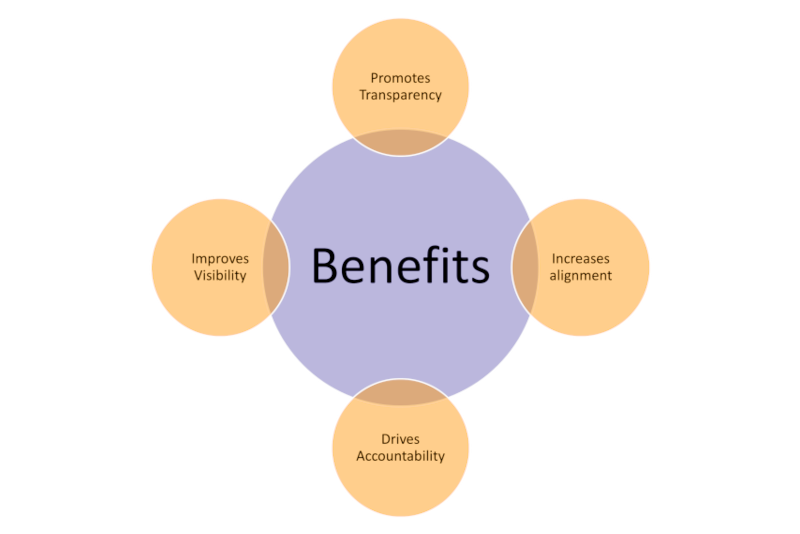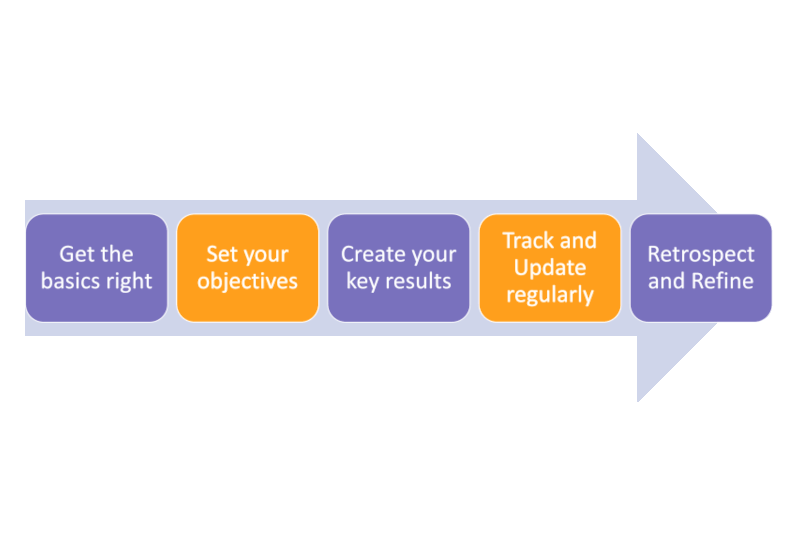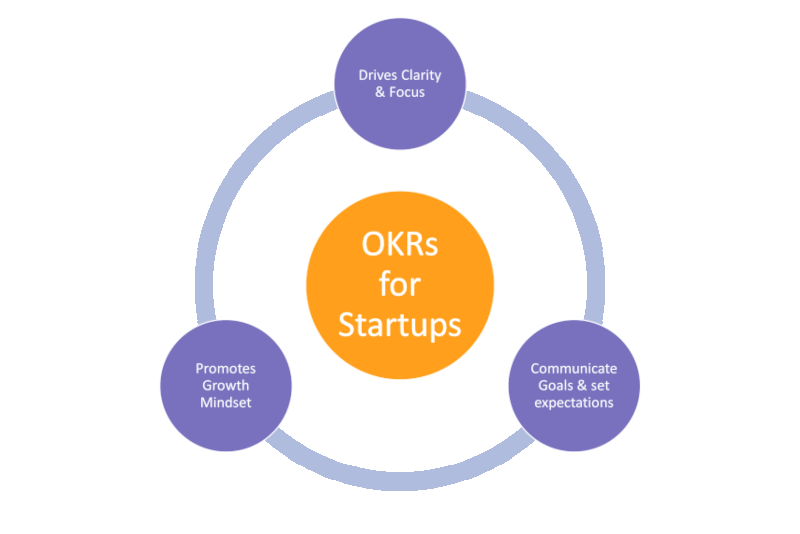Benefits of OKR
Like all strategic planning frameworks, the OKR Framework has its own set of pros and cons. In this section we will be looking at what are some of the benefits of using the OKR framework.

Promotes Transparency
OKRs promote transparency. The company level goals are out there for all the employees to see. Employees know what their company's plan is for the upcoming quarter or even for the year. It makes sure the whole workforce understands what the company thinks is important right now. This leaves no place for misinterpretation and employees would not be spending crucial time and effort working on things that are not vital.
Promotes Cross Functional Team Alignment
Alignment can make or break a company. This is one of the key reasons why companies like to implement OKRs. Imagine rowing a paddle boat. You want your team mates to be synchronized in movement so that the boat goes to where it should. This is valid for an organization as well. You do not want your teams working in silos. Instead, you want them communicating with each other and collaboratively working towards common, important goals. OKRs pave the way for that.
Promotes Accountability
Each Objective and Key Result is assigned to a specific member of a team. This means the member oversees the delivery of that Objective/Key Result. One can ask, “How is this different from micromanagement?”. The difference lies in the process. Micromanagement happens when leaders tell their employees what to do, how much time to spend on each task and keeps the employee under scrutiny. With OKRs, especially the hybrid model, the teams take charge of how to invest their time and energy in the best way possible. Remember - ownership mentality cannot be assigned. It thrives in situations where employees are trusted to do the right thing. The OKR framework pushes teams to think about what kind of role they are playing and how they can contribute better towards company goals.
Provides Visibility on Progress
Setting goals are critical. And having them executed properly is what determines a company's fate. Quoting John Doerr famous saying - “Execution is everything”. This is easier said than done and is considered one of the most challenging responsibility of executives. The OKR framework allows you to keep a close eye on the progress. Since OKRs are outcome focused (and not output focused), this gives executives the clear picture of where the company is headed towards. Executives can determine if the objectives will be met, an important insight to steer the company in the right direction.


